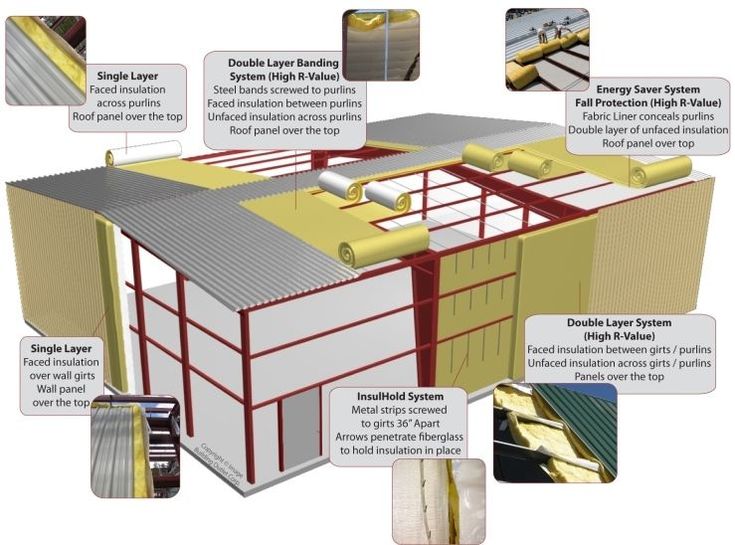There’s a reason why Fiberglass Insulation remains the most popular choice among consumers. Its unique properties and benefits make it a reliable and efficient option for various insulation needs and provide a sense of security in your decision.
Numerous insulation types are available on the market, each with its niche. However, it’s essential to be cautious. If one asks a particular distributor of insulation type whether that insulation will meet their need, the distributor will almost always say, “Yes.” Why? Because they are not a neutral agent. Even though an agent may be honest, they will still be biased due to the economic incentive pushing the insulation type they represent
Factory Steel Overstock, an independent steel building and insulation brokerage firm, stands out as your trusted source for unbiased insulation recommendations. We are committed to presenting the most cost-effective insulation that meets high thermal efficiency standards. Our top recommendation, fiberglass insulation, is chosen solely for its cost-effectiveness and is not influenced by economic incentives, ensuring you can trust our information.
Fiberglass Insulation 101
We can start by saying that fiberglass insulation has been around for over 100 years, though the facing has improved dramatically. It offers many benefits, making it a significantly more affordable and efficient option for residential, commercial, industrial, and agricultural applications. When installed correctly, its thermal efficiency is close to par with spray foam, making it a smart choice for your insulation needs. Its dense fiber structure provides good soundproofing advantages. Unlike Spray foam, Fiberglass insulation is free from harmful chemicals, ensuring a safe and healthy environment and giving you peace of mind about your health and well-being.
Spray foam offers several advantages: First, because it expands, it is better for filling in cracks, creating a tighter seal than fiberglass. With a stricter seal, there is a higher energy efficiency, which ultimately leads to the ultimate goal—a lower utility bill. Since spray foam has moisture-resistant properties, it reduces the chances of moisture, which can cause mildew. Finally, spray foam insulation has a higher per-square-inch R-value than fiberglass.
If all this information makes deciding between spray foam and fiberglass, let me simplify it for you. Fiberglass insulation materials and installation are less expensive because you don’t need a professional installer. When you factor that in, if you have ample space to cover or are concerned about cost, most select fiberglass over spray foam.
There are a few reasons Fiberglass Insulation is often selected over foam board: Firstly, it is also more cost-effective in terms of the actual material and the installation cost. Because it is more versatile, it can be utilized effectively in irregular spaces. Also, one can easily argue that it is a better safety item if one orders a fire retardant. Finally, because of the composition of fiberglass, it is a better soundproofing insulation than foam board.
Like spray foam, foam board has its advantages over fiberglass insulation. Let us begin by indicating that it has a higher R-value per inch of thickness and superior thermal efficiency. The foam board is impervious to moisture, which is a crucial advantage since it, too, like spray foam, will not encourage mold and mildew. Another benefit is it will not sag over time, like fiberglass insulation may, ensuring a more consistent performance. Moreover, foam board is as it sounds; therefore, it can be cut more precisely, making it a cleaner fit in most cases.
As stated earlier, every insulation type has its niche. However, I believe the public leans more often than not toward Fiberglass over foam board because of its lower cost, familiarity with it, superior soundproofing, and adequate thermal efficiency. All three insulation types are solid options, but one keeps shining above the others regarding the purchase numbers: fiberglass insulation.

